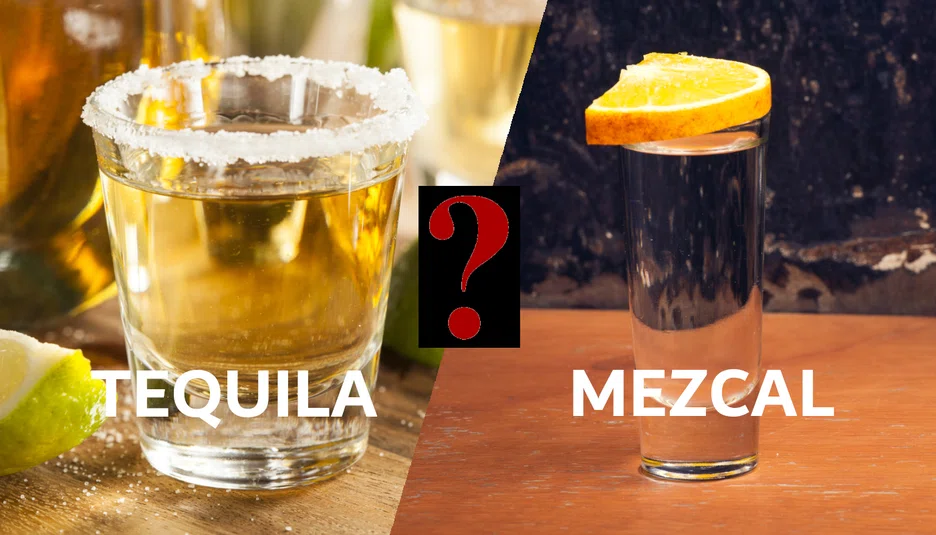Tequila vs. Mezcal: What Is the Difference?

Tequila is one of the most common drinks consumed around the world.
But did you know that it has a similar opponent, mezcal, that is rapidly gaining popularity?
Mezcal provides a palate thrilling sensation that’s perfect for Agavales Tequila lovers looking to give another agave spirit a try.
In fact, we refer to the two spirits as cousins because all tequilas are mezcals, but not all mezcals are tequilas.
Tricky right? Let’s clear the confusion and look at the differences between these two delicious Mexican spirits.
Where Do They Come From?
Where Do They Come From?
Although there is some geographical overlap, tequila and mezcal are primarily produced in different regions of Mexico.
Tequila is produced in the five regions known as Nayarit, Guanajuato, Michoacán, Tamaulipas, and Jalisco, where Agavales Tequila is born and the actual town of Tequila is located.
I mean how cool would it be to say you live in Tequila?!
Conversely, Mezcal is produced in nine different regions of Mexico with the majority of production occurring in Oaxaca.
How Are the Two Made?
How Are the Two Made?
Even though both Tequila and Mezcal are distilled spirits harvested from the core of the agave plant, the two are made using two completely different methods.
Tequila is produced by steaming blue agave in above-ground ovens.
After the plants’ hearts are steamed, the Tequila is distilled two to three times into copper pots.
Additionally, Tequila can only be made from blue agave while mezcal can be produced from up to thirty different species of the agave plant.
In fact, Agavales is made from premium 100% Blue Weber Agave to ensure the best taste and consistency!
On the other hand, mezcal is cooked in underground pits lined with lava rocks and charcoal before being distilled into clay pots.
This roasting method caramelizes the agave, resulting in a distinctive smoky taste.
The Aging Factor and Labels
The Aging Factor and Labels
After the distillation process, Tequila and Mezcal are placed inside oak barrels and left to age.
However, the two spirits vary when it comes to aging time.
Tequila, grouped into the three categories of Blanco (Silver or Plato), Reposado, and Añejo age for 0-2 months, 2-12 months, and 1-3 years respectively.
Mezcal can also be grouped into three categories known as Joven (Blanco or Abacado), Reposado, and Añejo with aging factors of 0-2 months, 2-12 months, and 1-2 years respectively.
Agavales is produced in Mexico’s most revered Tequila distillery, Casa Maestri, located in the magical city of Tequila.
The process of growing, cooking, distilling, and ageing Agavales Tequila takes place under Casa Maestri’s master distiller and skilled team.
Double distilled in oak barrels and aged to perfection, Agavales Tequila ensures premium and authentic flavor in every bottle.
The Difference In Drinking
The Difference In Drinking
Lastly, Tequila is most often consumed over ice or in the form of a margarita.
We recommend using Agavales Premium Plata Tequila the next time you make a margarita.
Made with sweet agave nectar and notes of orange citrus, Agavales Premium Plata Tequila will surely raise your margarita ratings!
On the other hand, Mezcal is traditionally sipped and garnished with an orange slice.
Because of the different distillation processes, you may even find a worm from the agave plant floating inside your mezcal bottle.
Agavales
on Social



